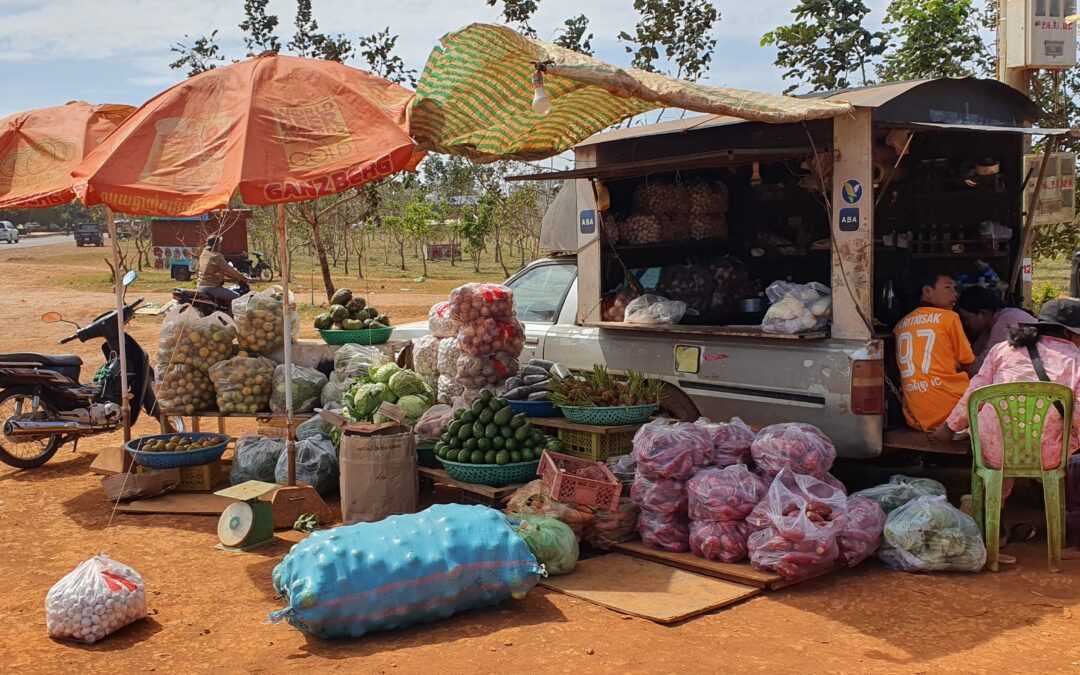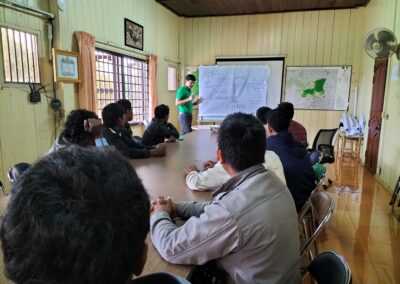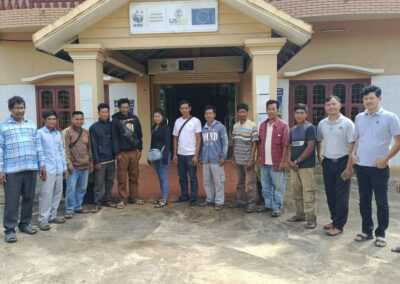© WWF-Cambodia

Cambodia is part of the Future Food Together Initiative since 2022, supporting the country in developing sustainable practices in food systems – from production to consumption. Our team has started working with producer groups in the Mondulkiri province to expand the use of sustainable farming methods in order to help safeguard the environment, to built resilient communities and ensure food security for future generations.
To date, agriculture plays a major economic role in Cambodia, and more than half of households are engaged in agricultural production. Nevertheless, food insecurity remains high. In addition, the country is increasingly suffering from the consequences of the climate crisis. Mondulkiri Province is located in the eastern part of the country, in the middle of the extremely biodiverse Eastern Plains Landscape. WWF Cambodia has been committed to the preservation of the ecoregion and has been fighting against illegal logging, wildlife hunting and land clearance for agriculture.
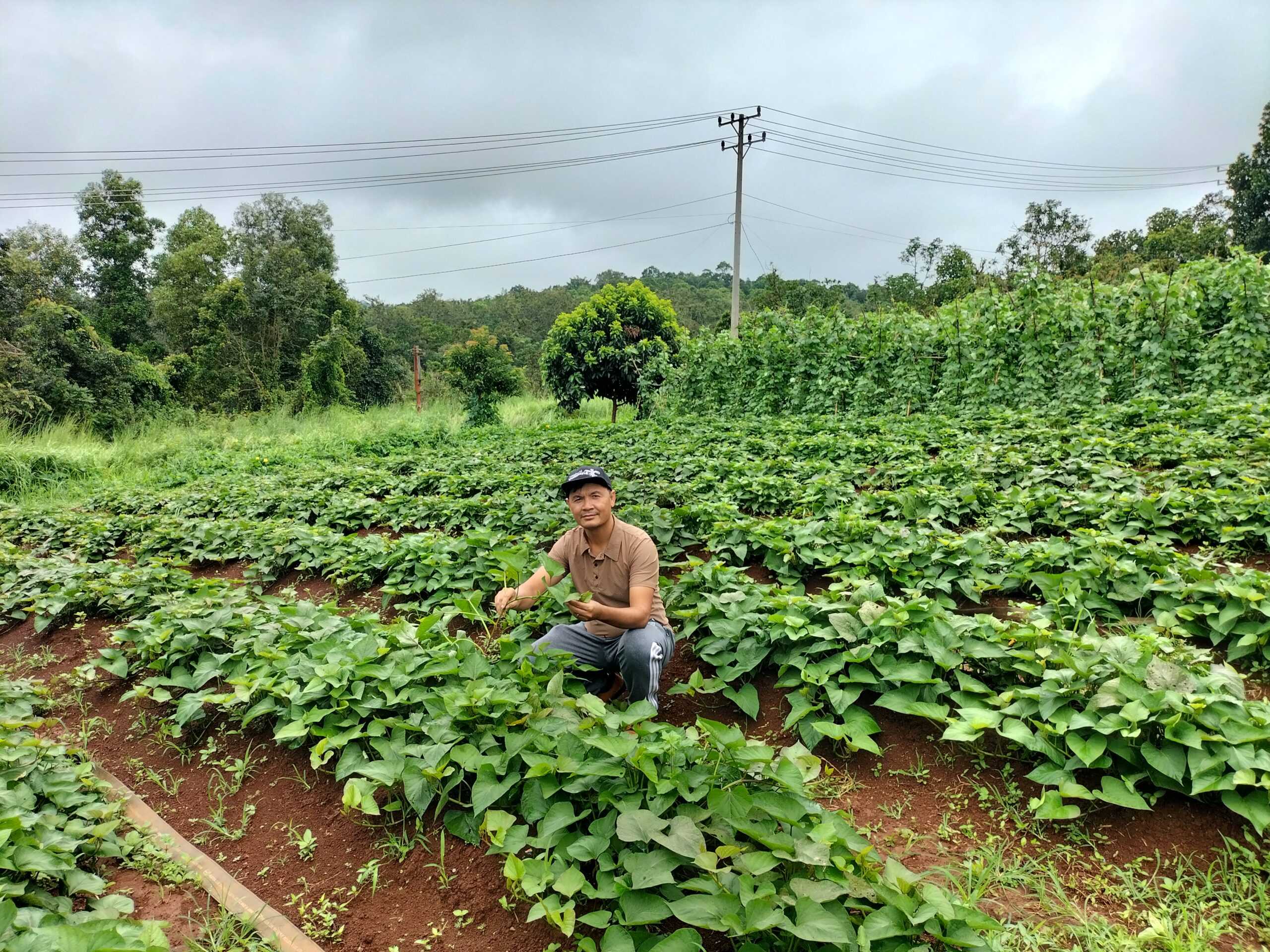
Understanding the current agricultural practices in the region © WWF-Cambodia
Promoting Sustainable Production Methods in Mondulkiri Province
In this early phase of the project in Cambodia, our team is focusing on supporting the cultivation of a few high-value agricultural commodities. In addition to working with producer groups on the sustainable cultivation of vegetables and the collection and marketing of wild honey, the focus lies on the sustainable production of cocoa.
Future Food Together actively engaged with the local communities and farmers to evaluate agricultural practices, with a particular emphasis on the cultivation of vegetables and cocoa. During these interactions, certain key observations came to light. It became evident that there was a considerable knowledge gap in cocoa cultivation, including issues related to seed selection and maintenance. Additionally, proper water management for cocoa production was lacking, resulting in negligence in the way cocoa farming was carried out. In light of these challenges, it is imperative to provide technical training to the farmers to address these issues.. The cultivation systems promoted by our team are based on agro-ecological principles in harmony with the biodiverse environment. Farmers are encouraged to adopt practices that promote soil health, such as organic composting and mulching, which enrich the soil and prevent erosion and to implement water management strategies. Our team organized a collaborative technical training on cocoa cultivation in October 2023, emphasizing the importance of providing adequate shade for cocoa trees, the significance of adhering to EU deforestation-free product guidelines, and effective pest management and water management strategies during dry season for successful cocoa cultivation.
The promotion of these sustainable and resilient farming systems can contribute to food security, support rural communities, preserve ecosystem biodiversity, and combat the effects of climate change.
Impressions from our team engaging with producers groups © WWF-Cambodia
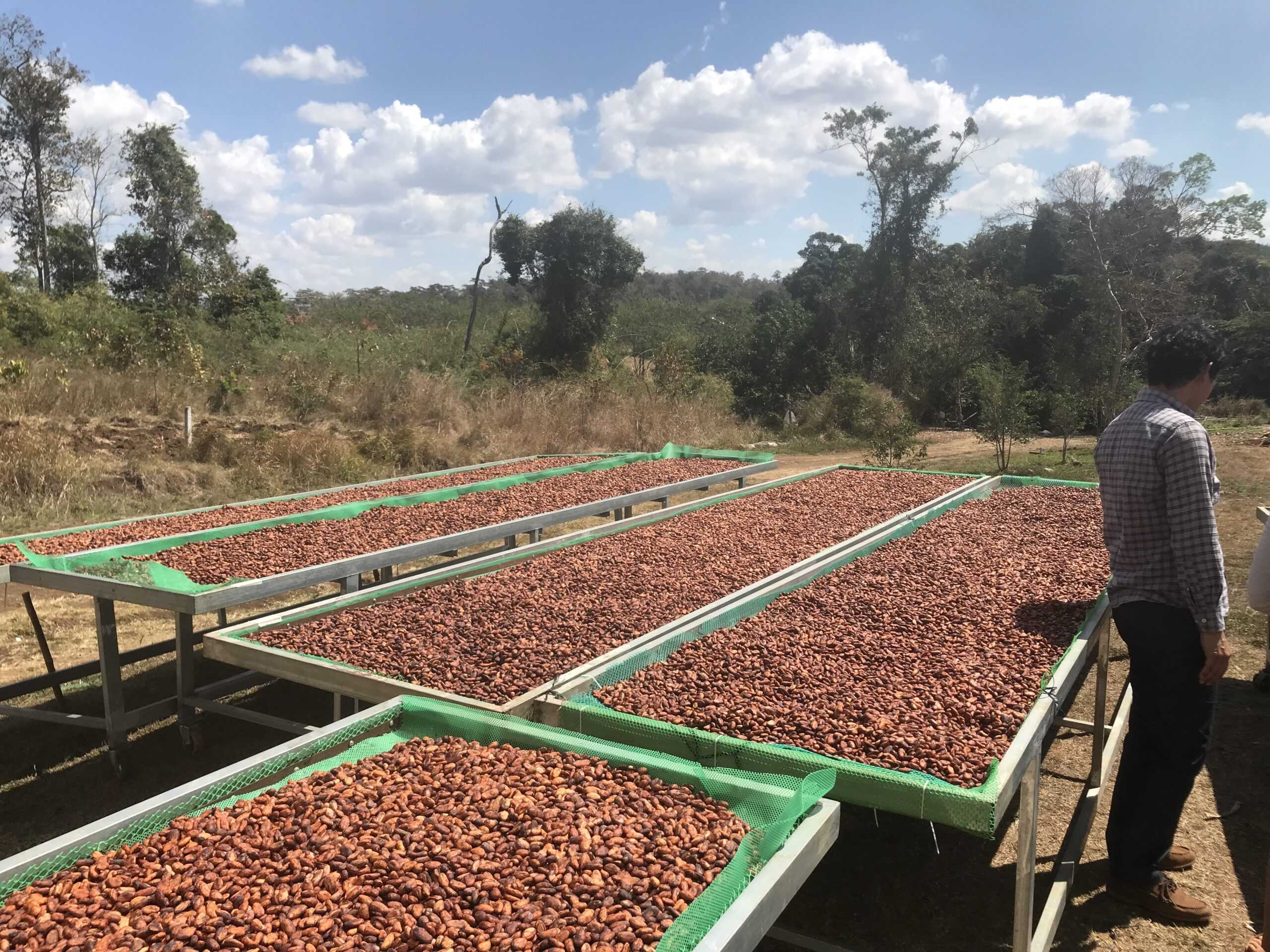
Drying cocoa beans in the heat © WWF-Cambodia
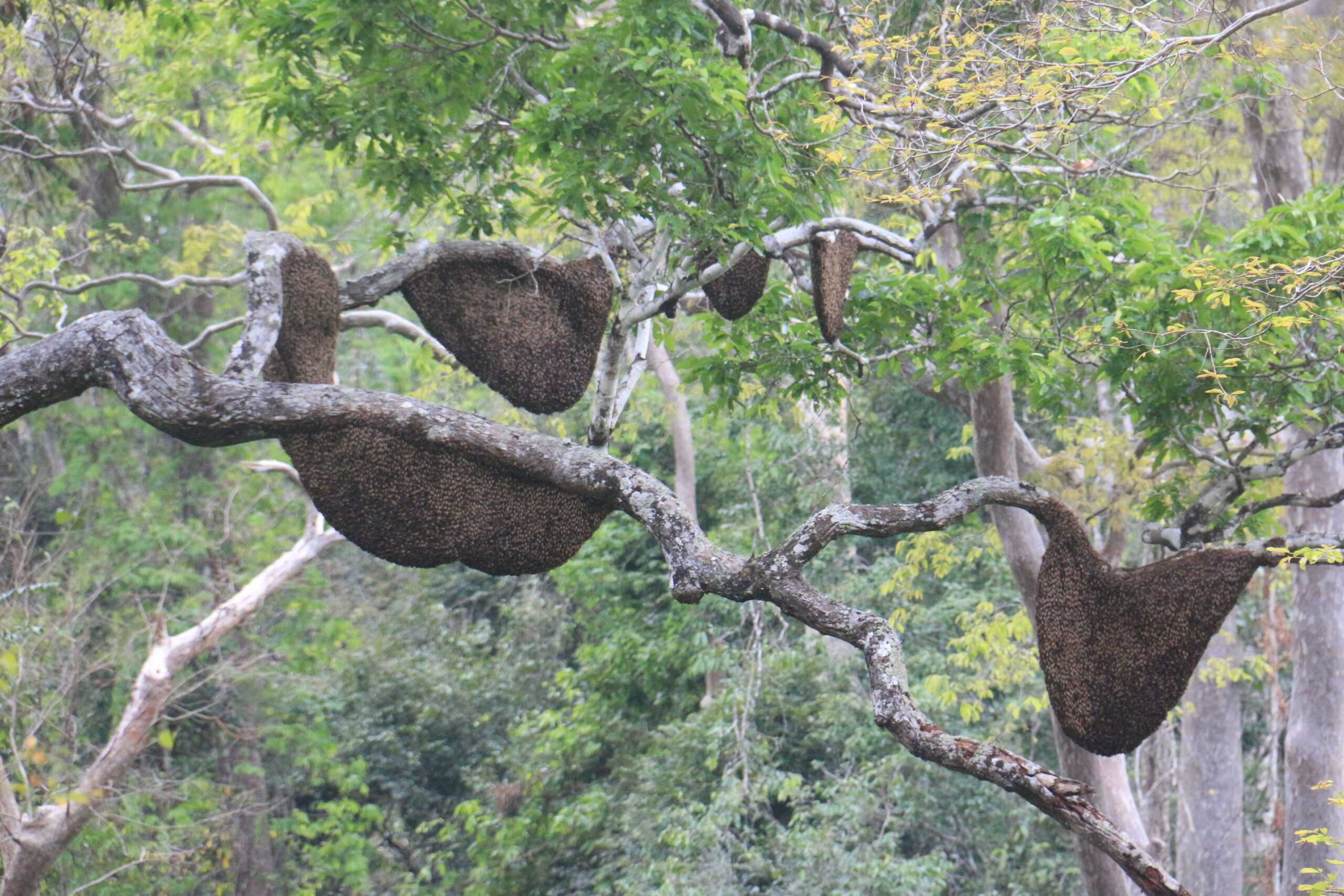
In 2010, the Mondukiri Wild Honey Network was established, driven by local community interest. Since 2017, WWF has been supporting the registration process for the Protected Geographical Indication of the product. © WWF-Cambodia
Setting the Political Framework for SCP
Additional measures are necessary to facilitate the transition of the food system on a national scale. The Cambodian roadmap for sustainable consumption and production from 2022 to 2035 outlines the Ministry of Environment’s recognition of the importance of supporting sustainable soil management, sustainable food production, and the responsible management of agrochemicals. These aspects are pivotal opportunities to enhance the sustainability of Cambodia’s economic and social development sectors. A Memonrandum of Understanding has been signed between Future Food Together and the Ministry of Environment, paving the way for a robust and mutually beneficial partnership to advance sustainable production practices within the country.
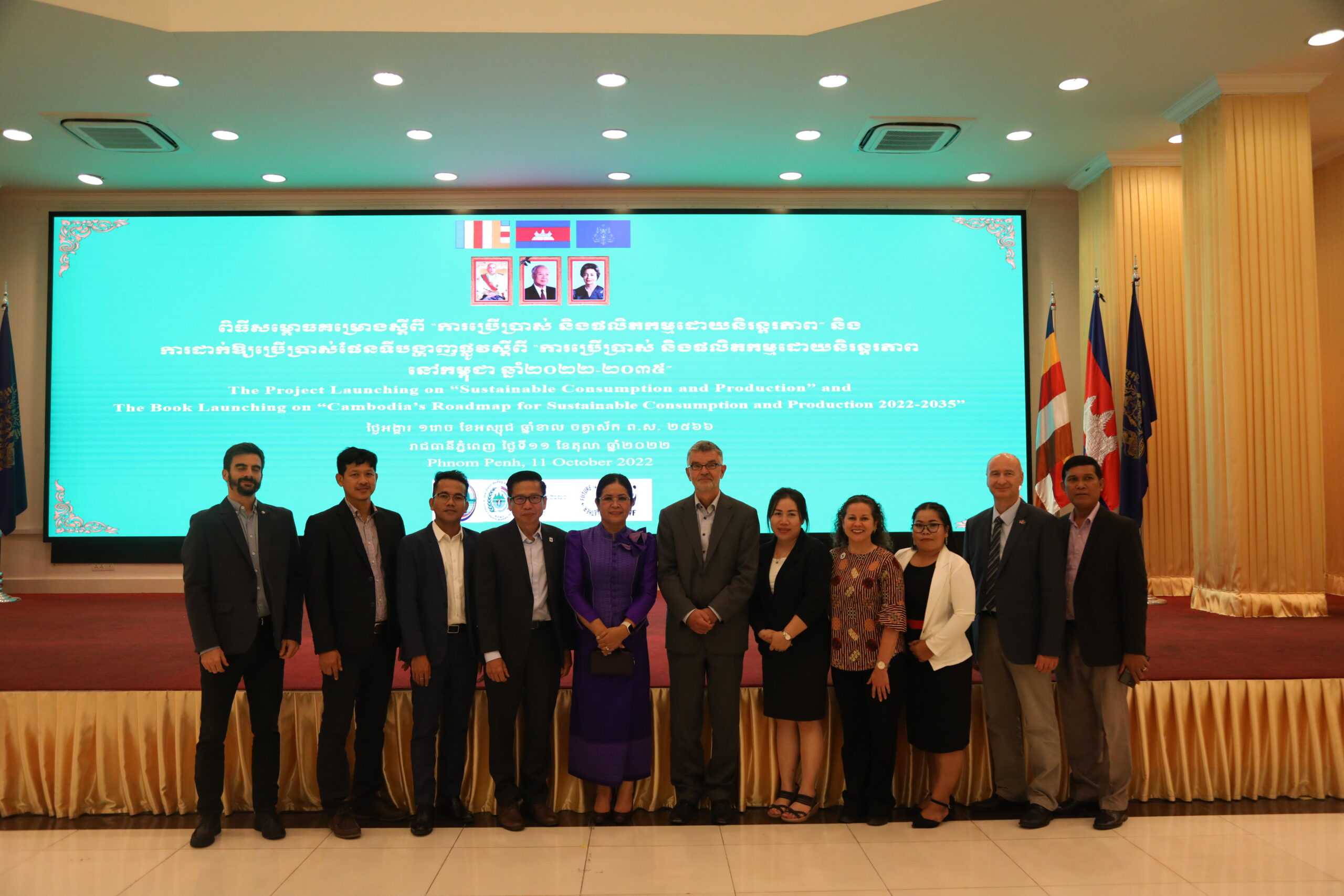
At the kick-off event in Phnom Penh in October 2022, with representatives from the Cambodian Ministry of the Environment and the German Federal Ministry for the Environment, Nature Conservation, Nuclear Safety and Consumer Protection. © WWF-Cambodia
Find out more about our work in Cambodia here:

